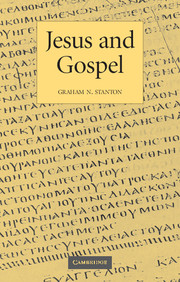Book contents
8 - Why were early Christians addicted to the codex?
Published online by Cambridge University Press: 21 December 2009
Summary
The transition from the roll format to the codex-book format in the early centuries of the Christian era was at least as revolutionary as its two later counterparts. Who doubts the importance of Johannes Gutenberg's mid-fifteenth-century invention of printing by using movable type? Or the late twentieth-century emergence of a CD-ROM only 12 cm in diameter yet able to hold a very large book in digital form?
In this chapter I shall refer to new evidence and try to account for early Christian ‘addiction’ to the codex along partly fresh lines. But I cannot hope to solve all the problems, for there are still too many gaps in our knowledge. I shall argue that attention to the origin of the codex forces us to reconsider several important issues. Even before Paul wrote his first ‘canonical’ letter c. ad 50, followers of Jesus were accustomed to use the predecessors of the codex-book format, various kinds of ‘notebooks’. They used them for Scriptural excerpts and testimonies, for drafts and copies of letters, and probably also for collections of traditions of both the actions and the teaching of Jesus.
I owe the phrase ‘addiction to the codex’ to Sir Frederic G. Kenyon. His publication in 1933–7 of the Chester Beatty Biblical papyri sparked off interest in the emergence of the codex which continues to this day, for all twelve Chester Beatty manuscripts are in the codex format.
- Type
- Chapter
- Information
- Jesus and Gospel , pp. 165 - 191Publisher: Cambridge University PressPrint publication year: 2004

